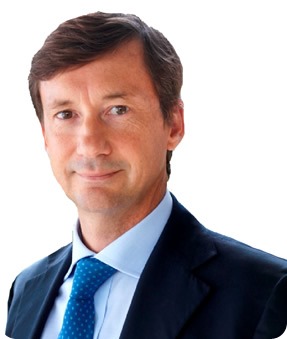Epicure is a project led by Inventiva and Institut Curie that aims to deliver pre-clinical candidates on two novel epigenetic targets that have been selected due to their potential to activate immune responses against cancer cells. In addition one of these two targets has potential in respiratory indications such as asthma or COPD.
Inventiva is a drug discovery company based in France made up of around a hundred people. We specialise in early drug discovery with a focus in transcription factors and epigenetic targets, especially in the oncology and fibrosis field.
In addition to the Epicure project, Inventiva has several ongoing projects in the epigenetic arena. For example, we are working on EZH2 and G9a which are two very promising targets that have attracted a lot of attention from big pharmas. One year ago when we began discussions with Curie, we were convinced that by joining forces we would excel in the epigenetic field. This is how the Epicure program became a reality.
Curie is very skilled in early target validation research, basic research with teams that are world-wide leaders in the epigenetic field. They also have access to patients, so they can bring a translational side to the project while Inventiva brings drug discovery capabilities and a well established capability in delivering clinical candidates.
Which teams at the Institut Curie is Inventiva partnering with and what will be the main benefits of this collaboration?
One team is led by Genevieve Almouzni, the Director of Institut Curie and worldwide expert in the epigenetic field. Another team is led by Sebastian Amigorena, an expert in cancer and immuno-oncology who is a recognized expert in the two targets we are working on.
The third team involved is that of Sergio Roman-Roman and he brings the translational side of the project because he has access to patient tissue. He has transcriptomic capability that will be key in identifying new indications. Our aim is to have a preclinical candidate available and ready to be used in humans, which would finalise the collaboration.
What progress has the Epicure project made so far?
The first step in the collaboration has been to do a screening. We have screened our internal library of 240,000 compounds, 70 percent of which are exclusive to Inventiva. We have used our library for other internal epigenetic programmes and we have quite a lot of expertise around this target family. The screen for Epicure has therefore been performed successfully and we are ready to start the confirmation phase.
What do you think will be the main hurdles that need to be overcome?
The objective is to find safe and selective compounds. This is the challenge for any drug discovery programme. The combined Curie expertise in epigenetics with our drug-discovery platform gives us confidence to deliver safe and selective compounds.
The Epicure project has received financial backing from France’s national research agency, the ANR (Agence Nationale pour la Recherche). How was this funding achieved and what impact will it have?
It's quite a selective process because I think that only around one in ten applicants actually receives the funding. The process is available and open to everybody, so we worked with Curie to write a synopsis of the programme we wanted to achieve.
We were chosen to go through the first round and then a much more complex second round, where we had to provide a detailed research plan to show the excellence of the programme and what the impact would be on patients and new therapies. Then we were selected and just recently, we were awarded a grant by the French Ministry of Health, Department for Research.
The finance is of course an important part of the total budget we have for this project and for Inventiva, it reduces the risk we are taking in embarking on this drug development programme.
When will the Epicure project be completed and what will be the next steps?
The end date should be around 2018 and once we have the preclinical candidate, the next step would be to enter into the preclinical development phase and move into the clinical trial stage.
How important do you think epigenetics will be in the future of cancer treatments?
If you look at the results of work done with other epigenetic targets, such as EZH2 you can really see how promising the results are. We really believe in this class of targets, which is why we worked on the programme. It is an interesting and innovative approach to cancer therapy, especially in terms of treating patients that are resistant to other drugs.
Where can readers find more information?
About Frédéric Cren
 Frédéric Cren is CEO and co-founder of Inventiva. He has held several key positions in the pharmaceutical industry, the most recent being general manager, Research at Abbott Labs from 2010 to 2012.
Frédéric Cren is CEO and co-founder of Inventiva. He has held several key positions in the pharmaceutical industry, the most recent being general manager, Research at Abbott Labs from 2010 to 2012.
His expertise in development, marketing, strategy and operations has developed through a number of roles; vice-president Strategic Marketing, vice-president US Operations and member of the Executive Committee of Fournier Laboratories from 2001 to 2005.
During this period he was in charge of Fournier’s fenofibrate franchise and of the successful development and launch of TriCor® 145. He subsequently moved up to head of business strategy and portfolio, senior vice-president of the Research Division and member of the Executive Committee of Solvay Pharmaceuticals following the acquisition of Fournier by Solvay in 2005.
Prior to joining the pharmaceutical industry, Mr. Cren was a consultant for 8 years with The Boston Consulting Group and a manager in their healthcare practice. He holds an MBA from INSEAD, a MA from Johns Hopkins University and a Bachelor’s Degree from Paris IX Dauphine.